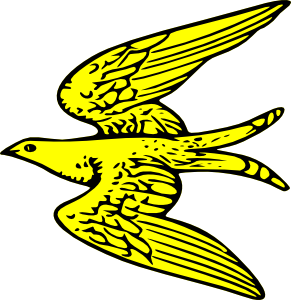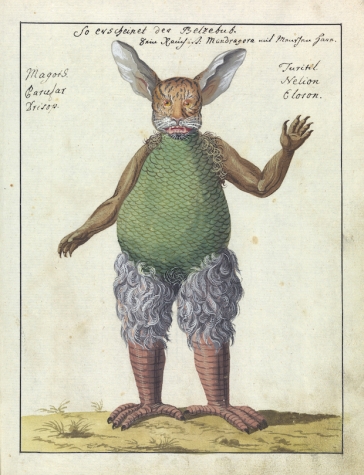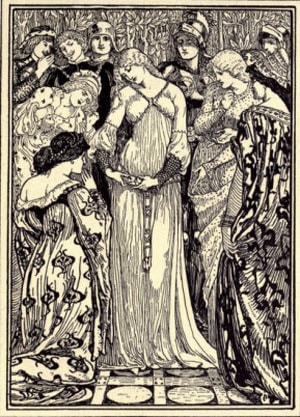 Clipart
Clipart
Cozy
I realize not everyone in the world can be as cozy as I am right now. That should make me at least empathetic, but I am too cozy at the moment to feel others’ discomfort.
I speak, of course, of my comfy chair by the warming fireplace within view of my bay window through which I see the silhouette of the magic forest under a cold, full moon. To complete this theme: a cup of Lapsang Souchong tea and a book, The Magic Pisspot.
This being Sunday, Melissa and I had tea at the Vaults. Over scones with clotted cream, didn’t she sell me this book. She knew I’d want it. The storyteller is Per Gustavsson, associated with Land of Legends Museum, translated into English by Richard Martin, the fellow I met in Augustus’s tobacco shop back in April. I am charmed by the Kjell Sundberg’s illustrations—colorful and a bit out of focus, lending them a surreal, magical appeal.
The story that has caught my attention is The Little Gold Bird.
A queen sees a drop of her own blood on the snow caused by her nosebleed. She wishes for a child with lips that red and skin that white.
The wish is granted with the birth of a daughter, but one proud and spiteful. She grows up and marries a king. One of the king’s courtiers declares she is as beautiful as the sun. That anything should be her equal angers the young queen.
She challenges the sun, asking who is more beautiful. The sun replies they are equal in beauty, but that the queen will have a daughter who will be more beautiful than either of them.
That does not help.
When the daughter is born, the young queen sends her away from court, so that the queen’s reputation would remain intact. The sun continues to be a nagging reminder.
When the daughter is fifteen, the king insists she be brought back to court. The queen plots with a lady-in-waiting to throw the girl down a well.
A well, however, can lead to another world, as this one does. There the girl finds a messy lodge with twelve unmade beds. Simply to make herself useful, she tidies the place up and makes the beds.
The lodge belongs to twelve creatures, made up of different animal parts, of whom the girl is initially terrified. However, they turn out to be enchanted princes waiting for a little bird with gold feathers to sing to them, breaking the enchantment. Meanwhile, they are delighted to have someone to clean up after them.
“Chauvinists!” a little voice pipes. Thalia’s fairy reads over my shoulder.
“Now my dear, it was a different time,” I say.
“I know,” she replies, “I was there. They were chauvinists.”
“You were in this story?”
“Stories like it.”
I forgot the fairy’s longevity and must concede.
The sun still declares the daughter as the most beautiful, and the lady-in-waiting is sent back to the well, where she hears the girl singing in the other world. Calling down the well, the lady-in-waiting promises to return to rescue her and throws down a piece of sugar candy, a “gift” from the queen.
Unsuspecting, the girl eats the candy, which gets stuck in her throat, and she falls into a deathlike swoon. The ugly princes cannot bring themselves to bury her. Placing her in a silver coffin, they float her off onto a river.
A king finds the coffin, and through an accident the sugar candy dislodges from the girl’s throat and she returns to the living. They are soon married.
When the new bride is with child, the queen appears disguised as a midwife. When the child is born, the queen sticks her daughter with a golden needle, turning her into a bird with golden feathers, and assumes the guise of her daughter.
The bird flies off to break the enchantment of the twelve princes, then returns to the king. Still deceived by the queen, he follows her instructions to kill and cook the bird, then serve it to her.
Before killing the bird, he sees the golden needle and pulls it out, returning his true bride to her human form. The queen, her treachery exposed, falls dead.
“And so it should be,” declares the fairy and flitters off.
Fairy Tale of the Month: January 2018 The Little Gold Bird – Part Two
 Illustration of Beelzebub, MS 1766
Illustration of Beelzebub, MS 1766
A River
“A nosebleed! How uncouth,” says Duckworth.
“Well, maybe a bit. I think of it as being unaffected by literary norms,” is my rebuttal.
“No, it’s uncouth. There’s no excuse.”
Duckworth and I step lively on our way through Sydenham Hill Wood. The lively stepping is partly for exercise and partly to keep warm.
“You must agree,” I argue, “it is an interesting tale, nonetheless.”
“I thought it was seven dwarves, not twelve ugly princes.”
Duckworth is baiting me.
“Variants, my dear boy, variants. I think every storyteller needs to put their own spin on a story. If these ancient, itinerant tellers lacked for possessions, they did not lack for imagination.”
Duckworth smiles. “Actually, the tale is not only long, but has a sense of epic proportions.”
“I agree,” I say, “but let me hear your observations.”
“For one thing,” Duckworth begins, “the story touches on four generations: the queen with her nosebleed, her prideful daughter, the more beautiful daughter, and then her son, who gets perilously close to being motherless.
“I get the sense of a curse being passed down through the generations as in the Greek tragedies.”
“What would the curse be?” I ask.
Duckworth thinks a while. “The first queen makes a wish of the corporeal world, literally of the flesh, without thought for spiritual concerns. I won’t say that was sinful of her, but perhaps an ill-considered wish.”
I feel ill at ease at Duckworth’s turn toward dark thoughts, as we pass through the dense growth of this remnant of the disappearing Great North Wood.
Duckworth continues his reflections. “The second queen, through the fault of her mother’s wish, embodies moral bankruptcy. Entirely obsessed by her physical beauty, she can brook no rivals, not even the sun, much less her own mortal daughter.”
“The sun,” I interject, “takes the place of the mirror as it appeared in Snow White.”
“I wonder,’ says Duckworth, “if the mirror isn’t an invention of a French storyteller’s imagination?”
“Hmmm,” I say, “the French are more reflective than stellar.”
Duckworth raises his eyebrows at my poor pun. “Be that as it may, we don’t get to understand the truly beautiful daughter until she is cast down the well and enters a different realm.
In the world at the bottom of the well, outer beauty plays a lesser role. The twelve ugly beasts? Really princes inside. Are they overcome by her radiant beauty? No, rather they see her inner qualities.”
We turn down one of the many paths that loop through the wood, to begin our return to the starting point.
“But then,” I speculate, “she is rediscovered by the upper world when she sings near the well.”
“And,” Duckworth builds on my lead, “the upper world, once again, tries to destroy her.”
“At which point,” I continue, “the princes put her in a coffin.”
“But do not bury her,” Duckworth chimes in. “They float her on a river.”
“The river Styx?” I suggest.
“I don’t think so. The Styx divides the world of the living from the world of the dead. This river flows between the lower realm and the upper realm, defying gravity, by the way, since it must flow uphill given that the girl got to the lower realm by falling down a well, putting her altitude below that of the upper realm.”
“I won’t worry about the physics of it if you won’t,” I say.
“Agreed,” smiles Duckworth.
Fairy Tale of the Month: January 2018 The Little Gold bird – Part Three
 Walter Crane, Faerie Queen 1894
Walter Crane, Faerie Queen 1894
Resurrections
After a fitness walk, which burned off a few calories, Duckworth and I justify stopping at the Cutty Sark Tavern for a bite. We grab a table by the row of windows overlooking the Thames. I already know I want the Scotch eggs.
Duckworth peruses the menu. “Pork pie, I think. Will you split a side of roasted marrow with me?”
“Delighted.”
“Where were we?” he asks, glancing around for a waiter. “I think we left the girl drifting up a river.”
“Yes, and by the way, in a silver coffin with a golden key.”
“Nice, and to be found by a king, very much like the prince finding Snow White’s coffin.”
“Similar,’ I reply, “except in this story it is the king’s mother, investigating the mysterious coffin, who unintentionally dislodges the sugar candy from the girl’s throat by sitting her up, then letting her fall back down again.”
“Really, that’s equal to the nosebleed in crudeness.”
“Surely not as romantic as Snow White being kissed by the prince, although I did find a variant in which the prince attempts to carry off Snow white’s coffin, but his men drop it and she rolls out, jolting the piece of poison apple from its place.”
“Odd,” muses Duckworth, “but the significance for me, in both cases, is that the heroine has died and is resurrected. In The Little Gold Bird, the heroine travels from the lower world to the upper world before she comes back to the living.”
I take his point. “In a way, she dies a second time when her mother turns her into a bird with the golden needle, in that she is no longer in her human form.”
“In that magical state,” Duckworth picks up the thread of his thought, “she goes to the twelve princes to break their curse, but then returns to the king?”
“Ah, I am remiss in not giving you all the details of her return. She doesn’t go straight to the king, but flies to his gardener, and asks how the king and the infant prince are doing. The gardener says that they do well, but why does she not ask after the queen. The bird replies, ‘May God punish her.’
“The gardener tells the king of this and the next day the king hides himself nearby when the bird visits again. On the third day the king disguises himself as the gardener and captures the bird.
“However, at this point the bird falls silent. The queen recognizes the bird and demands that it be served to her. The king, as he is about to hand the bird over to the cook, discovers the golden needle and pulls it out, restoring his true bride.
“They substitute another bird with the golden needle in its neck, then serve it to the queen, who eats it without remorse.”
“I’m beginning to lose my appetite.” Still Duckworth’s eyes dart about trying to spot a waiter.
“The story concludes,” I finish up, “with the king asking the queen how a mother who eats her daughter should be punished. Thinking, illogically, that the question does not apply to her, says, ‘By drowning.’ But instead, when the girl comes into the room, the queen falls down dead.”
“Drowning,” Duckworth considers. “Given the girl is thrown down a well and floated on a river, the queen’s suggestion of drowning in water makes an interesting choice. Ah, but see, here comes our waiter. But wait,” Duckworth glances at me sidelong, “the twelve princes do come to live in the castle, don’t they?”
“Of course they do, and happily ever after.”
“Good, then all’s well with the world.”
Your thoughts?

Dear Charles,
Many thanks for your thoughts and insights – a great blog!
Btw I have twice told Prince Hat under the ground. Unfortunately, at over 40 minutes, I have to accept that it is simply too long to pack its complexity into my normal evening performance situation. The last time I told it I split it either side of the interval, but that did not really work well. However, in June I’m back at the Ljungby festival, which this year is celebrating the centenary of Hyltén-Calvalius. I have two 40-minute solo performances. In one I’ll tell favourites from The Magic Pisspot. In the other I’ll tell just Prince Hat. I reckon the audience will know what they are signing up for, so this will be my only chance to try and do it justice.
Cheers, Richard ************** Boys who wouldn’t listen is the latest upload to the video gallery of over 70 folk tales available to watch
The Magic Pisspot : Swedish folk tales (Per Gustavsson, trans. Richard Martin) published Oct. 2017
>
I thought about Prince Hat and may come back to it for a blog.
Fantastic to read your thoughts and reflections! This is on of my favorites from the book, but one I do not tell that often. I work as a storyteller at The Land of Legends/The Museum of Legends and I am so happy that Richard sent me your blog.
Take care! If you happen to take on Prince Hat, let us know! It’s an amazing story as well.